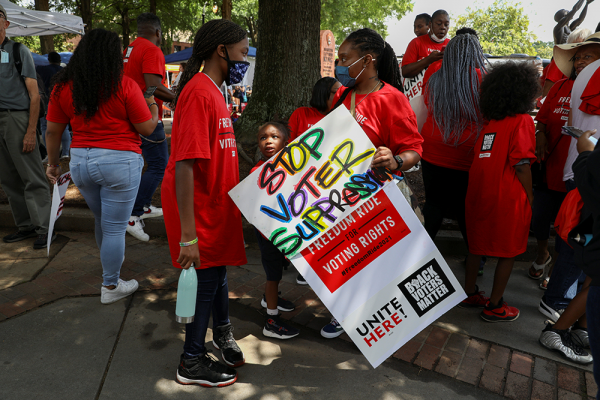Jul 1, 2021
Rev. Carl McCrae, bishop and founding pastor of Exousia Lighthouse International Christian Ministries in Lithonia, Georgia, remembers that his grandfather was one of the first people to vote in Georgia’s Montgomery County. Government officials attempted to prevent his grandfather from voting — until a white man vouched for him. Now, McCrae sees his ministry as continuing his grandfather’s fight for Black and brown Americans’ voting rights.
“I don't see a discontinuation between what I do in the pulpit on Sundays and what I do every day of the week,” McCrae told Sojourners. “That is to advocate for people of color and marginalized people as the systems that are rigged against them seek to destroy them.”
Read the Full Article

Already a subscriber? Login
